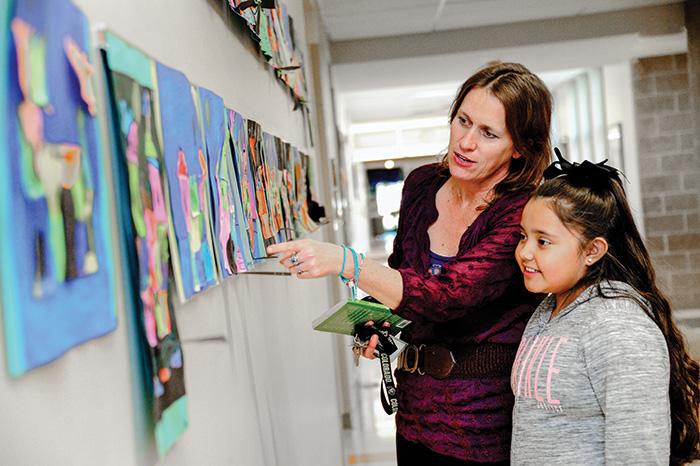
I hear whispers in the back: “La migra viene.” ICE is coming.
I wind my way through the tables and chairs to find a large group of my students huddled in the classroom library.
“We can’t come to school tomorrow,” one little girl murmurs to the group.
“What are you talking about?” I ask, standing behind them.
“Maestra, la migra is coming to school tomorrow to round everyone up.”
“Where did you hear that?”
“It’s all over the news, maestra. Mi mamá doesn’t want me to come. She’s scared.”
“No one is coming to get anyone here.” I react more strongly than I probably should.
“They are doing it, maestra. They are taking our parents and brothers and sisters.”
A little perspective: I’ve worked in the same school for 17 years, and I’ve seen the changes in our immigrant population. When I started, almost all of my students were undocumented. Now I have the younger siblings of these former students. Almost all of them were born here. The caveat is that now there are families with half undocumented members and half citizens. We have seen ICE go into homes and rip families apart, detaining the parents and leaving kids in the house alone. It’s hard to fathom, but it isn’t anything new.
So now, with a changing of the guard and its aggressive rhetoric, there is fear.
Maria starts to cry. Her dad was deported four years ago, so now she just has her mom. She visits him every summer, but her parents have decided it’s best for the girls to stay in the United States.
“What if they get my mom, maestra? I’m scared.”
“They can’t come to school,” I reassure her, thinking, Over my dead body will an immigration officer drag any child from my classroom. RESIST.
“It’s not that, but if I leave her alone tomorrow, they might take her,” Maria explains.
“You won’t let them take us from here?” Pedro asks.
“No, I won’t,” I state, as if it is a certainty. “And, Maria, I will help you if something happens to your mom.”
I go on to tell them I’m going to give them all my phone number. They should call me any time of day if something happens. I will go get them if I have to. It’s the only thing I can think of to calm them down, and the truth is, I will. I will get up in the middle of the night and pick them up, but then what?
RESIST.
Their hearts are full of anxiety, and they feel like outsiders. My students, who were born here and are being raised here, who speak two languages perfectly and contribute to the daily life of our school, feel like they don’t belong. I can’t have this, but what do I do?
After a little bit of investigating, we learn there is a protest. It’s not an ICE raid, but there is so much misinformation that families are anxious.
The next day, only four of my Hispanic students make it to school; 14 kids out of 28 are present. Everyone is feeling uncomfortable. The other children ask what is going on. We tell them about the protest, why their peers are not here. They look at me with misunderstanding in their eyes.
This is how prejudice and racism are fought, I think to myself. Letting them see how it affects their friends.
I feel sad inside, but I also try to find hope. Hope that these children will stand up for each other, for their families and for our nation.
Anne Garcia teaches fifth grade at Columbine Elementary School in Boulder, Colorado.
Share Your Story
We want to hear what motivates you to get up each morning and serve students in our nation's schools. Send your 600-word submission for the "Why I Teach" column to us here.